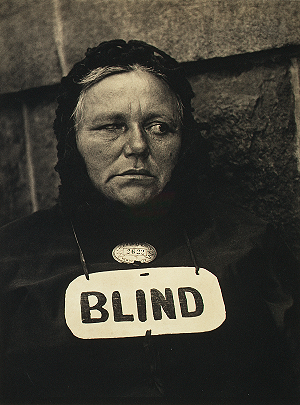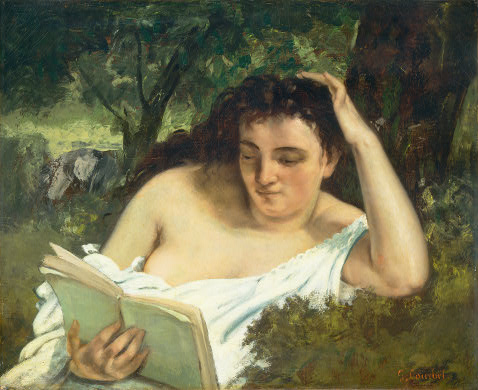The abridged translation of Thought and Language also omitted passages which the translators considered obscure, overly philosophical, and extraneous to the book’s scientific arguments. In the unabridged translation Kozulin noted, without elaboration, that some of Vygotsky’s conclusions were influenced by Mandelstam’s essay “On the Nature of the Word” (273). A seminal expression of Mandelstam’s poetics and theory of language, the essay originated in conditions that easily could have consigned it to oblivion. That Vygotsky had access to it at all suggests that Mandelstam placed it directly in his hands.
“On the Nature of the Word” was written in 1921 in the provincial city of Kharkov, where the Mandelstams found refuge for a time from the chaos of the Russian civil war. The essay was commissioned by Rakovskaya, sister of the premier of the Ukraine. With such a high-ranking party official as her patron, Rakovskaya was safe to append an epigraph at the beginning of the essay — lines from the same Gumilev poem which Vygotsky quoted over a decade later. Gumilev’s poem had been published not long before his execution in 1921. The essay was published a year later as a chapbook with a limited press run. When it was published again in a 1928 prose collection, the Gumilev epigraph was deleted along with the essay’s final section. The abridgement may have resulted from Mandelstam’s own self-censorship (Harris 308-12). When Mandelstam was arrested in 1934, his only copy of the original essay was confiscated by the secret police.
According to Nadezhda Yakovlevna, Mandelstam was neutral in 1922 about adding Gumilev’s lines to his essay. She endorsed their restoration to the text forty years later (Hope Abandoned 74). The lines signal not only the essay’s theme, but also its source. Here is the 1922 Gumilev epigraph in full, from Mandelstam’s essay:
We have forgotten that the word alone
Shone radiant over the troubled earth,
And that in the Gospel of St. John
It’s written that the word is God.
But we have limited its range
To the paltry boundaries of this world,
And like the dead bees in an empty hive
Dead words emit a foul odor. (72-73)
At the heart of Mandelstam’s essay is an expression of Russian nominalism, a belief in the reality of the living word. Gumilev’s poem traces this nominalism to the Bible, but its origin should be understood more accurately as the Greek language into which the Bible was translated. Mandelstam considered Russian to be a Hellenic language in its sense of the word incarnate as flesh and action. The language’s boundless, primal energy could not be proscribed by the state’s or the church’s linguistic forms. “The life of the Russian language in Russian historical reality outweighs all other facts in the abundance of its properties, in the abundance of its being,” Mandelstam wrote. “Such abundance appears to all the other phenomena of Russian life as but an inaccessible outer limit” (75). Throughout the final chapter of Thought and Language, Vygotsky emphasizes the same living, active nature of the word. “It is not merely the content of a word that changes, but the way in which reality is generalized and reflected in a word” (213). “Thought is not merely expressed in words; it comes into existence through them” (218). By quoting Gumilev and Mandelstam, Vygotsky invoked a similar Russian nominalism, although he framed it in psychological rather than Christian or Hellenic terms. “The relation between thought and word is a living process; thought is born through words. A word devoid of thought is a dead thing” (255).
![Khlebnikov"s Zangezi A page from Velemir Khlebnikov’s book Zangezi (1922), an ecstatic drama written partly in invented languages of gods and birds.” [Source: Wikipedia]](../../../../wp-content/uploads/2010/01/velemir_Khlebnikov_zangezi_1922.gif) Mandelstam believed that the Russian language “is not merely a door into history, but is history itself” (76). The language preserved a continuity stretching from the oldest Russian folk epics to the Futurist experiments (left) of Velemir Khlebnikov. For Mandelstam, Khlebnikov’s burrowing into the soil of Russian word roots, “into an etymological night,” renewed the life of word and language (75). Mandelstam and Khlebnikov often are held up as antagonists representing opposing movements in Russian poetry. The Acmeists wanted to preserve the past; the Futurists wanted to blow it up. Their poems are vastly different in form and tone, but Mandelstam and Khlebnikov shared a similar attraction to the nominalism of the living word. A few months after writing “On the Nature of the Word,” the Mandelstams shared a cramped apartment with Khlebnikov before the latter’s expulsion from Moscow, befriending him as a kind of helpless yet holy fool (Hope Abandoned 92).
Mandelstam believed that the Russian language “is not merely a door into history, but is history itself” (76). The language preserved a continuity stretching from the oldest Russian folk epics to the Futurist experiments (left) of Velemir Khlebnikov. For Mandelstam, Khlebnikov’s burrowing into the soil of Russian word roots, “into an etymological night,” renewed the life of word and language (75). Mandelstam and Khlebnikov often are held up as antagonists representing opposing movements in Russian poetry. The Acmeists wanted to preserve the past; the Futurists wanted to blow it up. Their poems are vastly different in form and tone, but Mandelstam and Khlebnikov shared a similar attraction to the nominalism of the living word. A few months after writing “On the Nature of the Word,” the Mandelstams shared a cramped apartment with Khlebnikov before the latter’s expulsion from Moscow, befriending him as a kind of helpless yet holy fool (Hope Abandoned 92).
To be cut off from the living language — Mandelstam called this “excommunication from the word” — was to be cut off from history itself, to plunge over the brink into nihilism (76-77). He insisted that the inherent unity of the language, even as it evolved and changed forms, was preserved across historical time. He rejected the “theory of progress” which maintained that recent literary forms were necessarily better than old ones (74). On its surface Mandelstam’s essay appears to be a polemic about the supersession of obscure literary movements (Acmeism, Futurism, Formalism, Symbolism). In the 1920s, debate about the “theory of progress” was played out at the level of bureaucratic maneuvering among rival literary factions, but by the time of the Terror it had become a matter of life and death for Soviet intellectuals. They were expected to espouse the historical determinism of Marxist-Leninist doctrine, which posited an unquestionable faith in the new Soviet order. Stalin’s regime did everything in its power to excommunicate gadflies of world culture such as Mandelstam.
Vygotsky’s own approach to Marxist doctrine was singularly contradictory, according to Kozulin. Vygotsky took Marx’s writings “absolutely seriously” as a philosophy and practical method for analyzing the political economy of the nineteenth century. He treated Marx as a social theorist on a par with Hegel and the French sociologist Emile Durkheim. But he did not embrace Marxism as an ideology, and he rejected dialectical materialism as a basis for psychological theory (Kozulin, Utopia 116). Vygotsky emphasized attention to concrete social conditions and historical development throughout his writings. At the end of Thought and Language he asserted, “Only a historical theory of inner speech can deal with this immense and complex problem” (255). To many a Western ear, such a theory sounds like Marxist doctrine. However, Vygotsky’s uses of history and culture were closer to Mandelstam’s boundless abundance than to Stalin’s narrow strictures.
The word “development” must have sparked heated debates between psychologist and poet in Mandelstam’s apartment in 1933. If Vygotsky had a consistent ideology, it was encompassed by the concept of development. Along with Piaget, he is now regarded by many as a founder of developmental psychology. Mandelstam, on the other hand, abhorred the word. He joked seditiously that Communist Party operatchiks were “developments with a beard” (Volkov 212). Theirs would have been debates over terms, not principles. Mandelstam read widely in biology and the sciences, and both his poetry and critical prose are suffused with images evoking the growth and evolution of organic forms. Near the end of “On the Nature of the Word” he described a “humanization” of psychology and science that could look beyond the objects of the external world to explore more fully the processes of human consciousness (82). Vygotsky sketched, but could not complete, a similar resolution of philosophy and science at the end of Thought and Language.
“Consciousness is reflected in a word as the sun in a drop of water,” he wrote in the book’s final paragraph. “A word relates to consciousness as a living cell relates to a whole organism, as an atom relates to the universe. A word is a microcosm of human consciousness” (256).
At the end of “On the Nature of the Word” Mandelstam expressed a similar belief in the living word’s capacity to encapsulate, transmit, and renew consciousness across space and time:
The age will shout itself out, culture will fall asleep, and the people will be reborn, having given their utmost to the new social class; and this current will draw the fragile ship of the human word away with it, out into the open sea of the future where there is no sympathetic understanding, where cheerless commentary will replace the fresh wind of contemporary enmity and sympathy. How can one equip the ship for its distant voyage, without furnishing it with all the necessities for so foreign and cherished a reader? Once more I shall liken a poem to an Egyptian funerary ship. In that ship everything is provided for life, nothing is forgotten. (83)
Read the complete essay: A Word is the Search for It
![gustave_caillebotte_paris_street_rainy_day Gustave Caillebotte. Paris Street, Rainy Day (La Place de l’Europe, temps de pluie). 1877. Oil on canvas. Art Institute of Chicago. [Source: Wikimedia Commons]](../../../../wp-content/uploads/2009/02/gustave_caillebotte_paris_street_rainy_day_1877_wiki.jpg)
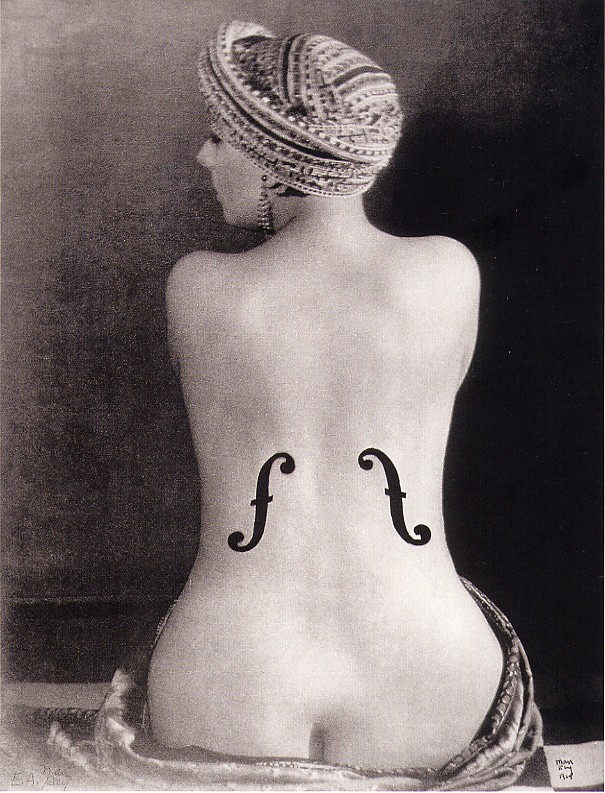 The legendary Kiki of Montparnasse posed for Man Ray’s
The legendary Kiki of Montparnasse posed for Man Ray’s 
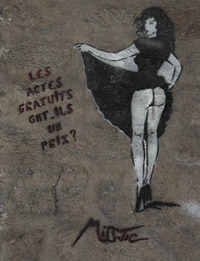
![Fog at Isle Royale [Source: wildmengoneborneo.com] Fog at Isle Royale [Source: wildmengoneborneo.com]](../../../../wp-content/uploads/2008/04/isle_royale_fog.jpg)
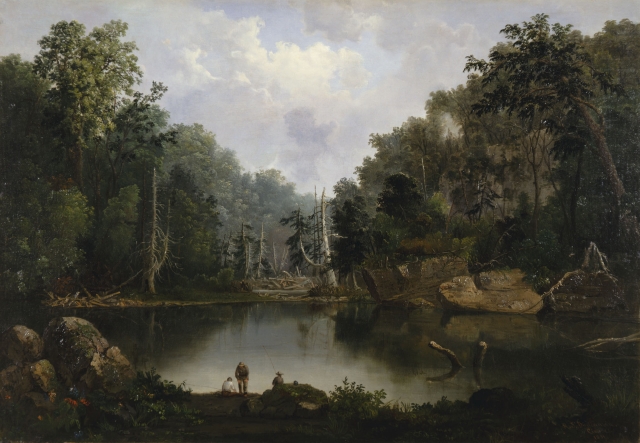
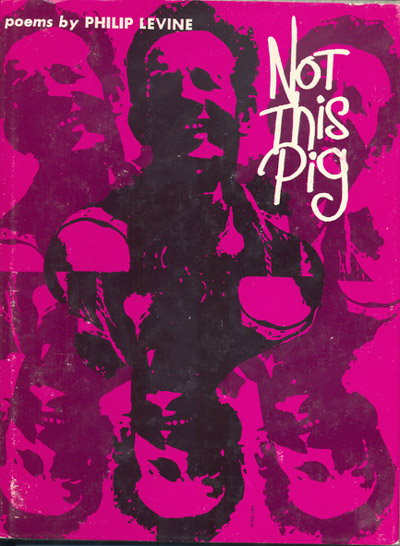 If there is an emerging genetic underclass, I could run for class president or class clown. Read more in
If there is an emerging genetic underclass, I could run for class president or class clown. Read more in 